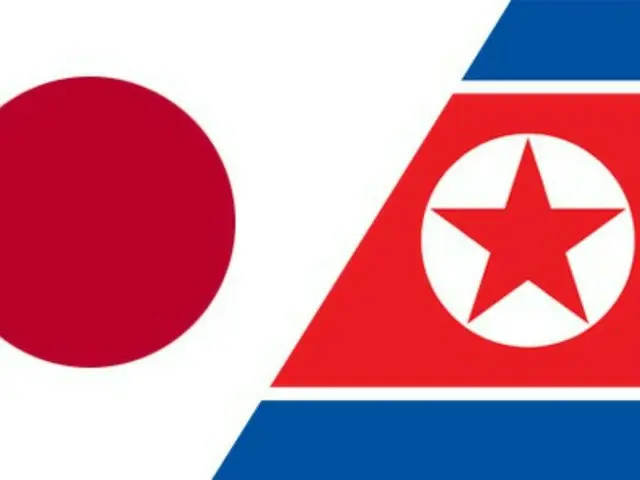However, Kim Jung Eun's sister, Yo-jong, has stated that she "rejects any contact or negotiations with Japan," so if the contact is true, it is unclear what North Korea's intentions are.
What is this? Although Japan-North Korea negotiations have hit a deadlock, the Japanese government appears to be working behind the scenes, and attention is focused on whether a breakthrough will be made to break the deadlock.
According to the newspaper, the meeting was attended by three North Korean officials from the Reconnaissance General Bureau, an intelligence agency, and three people involved in foreign currency earnings, while a delegation including politicians attended from Japan.
The purpose and content of the meeting are unclear. A source also told the paper that the two sides were scheduled to meet again in Inner Mongolia late last week, but the article added, "It is unclear whether the meeting took place last week as planned."
In February of this year, North Korean leader Kim Yo Jong released a statement through the state-run Korean Central News Agency, saying about Japan-North Korea relations, "If the abduction issue, which has already been resolved, is abandoned as an obstacle to bilateral relations,
"There is no reason why we can't get closer. The day may come when Prime Minister Fumio Kishida visits Pyongyang," he said. As Japan-North Korea negotiations hit a snag, North Korea has been showing signs of a conciliatory attitude toward Japan, albeit with conditions.
However, after Japan indicated that it would not accept North Korea's claim that the abduction issue had been resolved, Yo-jong declared the following month that "any contact with Japan will not be tolerated."
On the other hand, Prime Minister Kishida has long expressed his desire to meet with General Secretary Kim Jong Un in order to quickly resolve the abduction issue.
Prime Minister Kishida, who attended a national rally calling for the immediate return of the victims to their country, reiterated, "It is extremely important that we first build a relationship where the leaders can talk openly and frankly. We will do everything in our power to act."
On the 5th of this month, it was four years since Shigeru Yokota, the father of Megumi Yokota, one of the abduction victims, and the first representative of the victims' family association, passed away. On the previous day, his wife, Sakie Yokota,
At a press conference, he said, "It's futile that there has been no progress." Sakie added, "I want Prime Minister Kishida to create an environment where he and General Secretary Kim Jong Un can have a heart-to-heart talk and work toward a quick resolution."
I want you to pave the way," he said, urging for an early Japan-North Korea summit. The first Japan-North Korea summit was held on September 17, 2002, when then Prime Minister Junichiro Koizumi visited North Korea. Kim Jong-i
Kim Jong-il, the general secretary of the Democratic People's Republic of Korea, admitted to the abductions and apologized. He announced that five of the abductees were alive, and eight, including Megumi Yokota, had died. At the meeting, the two leaders exchanged the "Japan-North Korea Pyongyang Declaration." In the declaration, the two leaders stated that the relationship between Japan and North Korea was
They shared the view that settling the unfortunate past, resolving outstanding issues, and establishing fruitful political, economic, and cultural relations would be in line with the basic interests of both sides and contribute to peace and stability in the region.
The declaration included calls for the resumption of normalization talks, an apology by Japan for its colonial rule, and North Korea's adherence to its promise to resolve the nuclear issue.
The following month, the five abduction victims returned to the country. In 2004, Mr. Koizumi visited North Korea again, and the five abduction victims' families returned to the country.
However, since then, the abduction issue has been stuck in a stalemate for a long time, and North Korea has focused on its nuclear development. In 2014, the Japanese and North Korean governments agreed to a second investigation of the abduction victims by North Korea and an independent investigation by Japan.
The Stockholm Agreement, which included the partial lifting of sanctions against North Korea, was announced. North Korea established a special investigation committee, but went ahead with a nuclear test and missile launch in 2016. Japan strengthened its own sanctions.
In response, North Korea declared the dissolution of the committee, and the Stockholm Agreement collapsed despite hopes of progress.
Although the United States raised the abduction issue, North Korea did not take any concrete action. The last Japan-North Korea summit meeting was held in May 2004, and remains so to this day.
In response to a JoongAng Ilbo report that Japanese and North Korean officials had been in contact late last month, Chief Cabinet Secretary Yoshimasa Hayashi said on the 13th, "We are aware of the report, but
"Due to the nature of the issue, I will refrain from answering," he said. "There is no change to my intention to continue high-level discussions under the direct control of the prime minister in order to realize a summit meeting in order to resolve the various issues of concern between Japan and North Korea."
If North Korea, which had previously said it "rejects any contact or negotiations with Japan" (Yo-jong's statement in March), had indeed contacted a Japanese delegation in mid-last month as reported, what was its intention?
The newspaper analyzed that as North Korea faces difficulties both at home and abroad, "it can be said to be seeking an economic and diplomatic breakthrough."
2024/06/14 14:27 KST
Copyrights(C)wowkorea.jp 5

